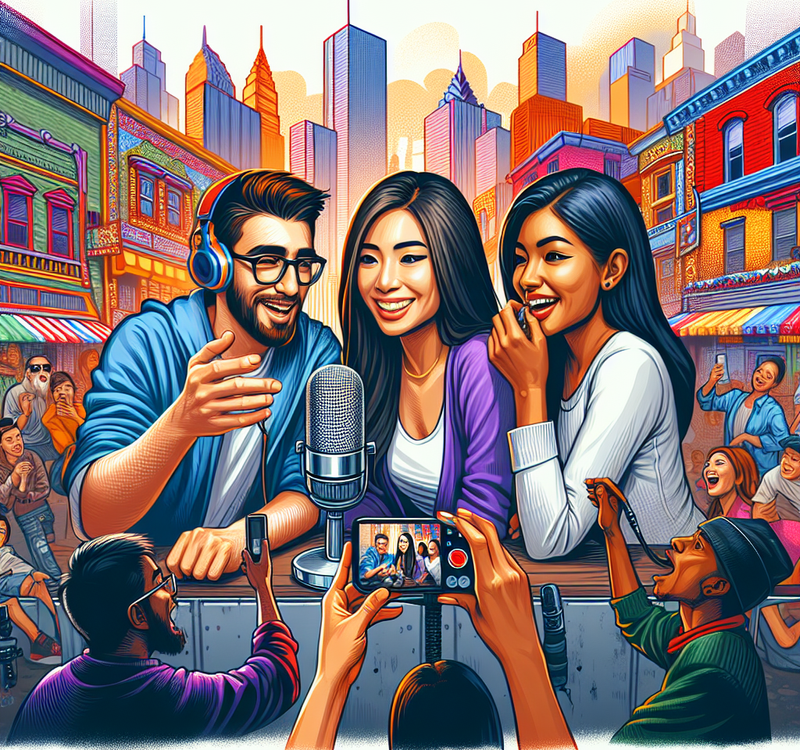
Influencer Marketing: Boost Your New Store’s Success with Digital Influencers
7 September، 2023
The Different Types of Influencers: Their Characteristics and Drawbacks in Marketing
8 September، 2023The Power of Online Marketing Ads: Leveraging Google, Facebook, and Influencer Engagement in Your Marketing Budget

SEO-Optimized Article: The Power of Online Marketing Ads: Leveraging Google, Facebook, and Influencer Engagement in Your Marketing Budget
SEO Meta-Description: Discover the power of online marketing ads and how they leverage popular social media networks like Google, Facebook, and influencers. Learn how to maximize your marketing budget and achieve your branding goals.
Introduction:
In today’s digital age, online marketing has become an essential component of any successful business strategy. With the rise of social media and the power it holds in influencing consumer behavior, leveraging platforms like Google, Facebook, and engaging with influencers has become an effective way to reach target audiences and achieve marketing and branding goals. This article will explore the significance of online marketing ads and how they can be utilized to maximize your marketing budget.
The Power of Online Marketing Ads: Leveraging Google, Facebook, and Influencer Engagement in Your Marketing Budget
Heading2: What is Social Media Marketing?
Social media marketing, also known as digital marketing or e-marketing, refers to the use of social media platforms to build a company's brand, increase sales, and drive website traffic. It allows businesses to engage with existing customers and reach new ones while providing valuable data analytics to track marketing efforts' success. With over 4.76 billion social media users globally and over 80% of consumers reporting the significant impact of social media on their buying decisions, social media marketing has become a multipronged source of marketing intelligence.
Heading3: Leveraging the Power of Social Media
The power of social media marketing lies in its capacity to connect with customers, enable interaction, and gather valuable data. Businesses can connect with their target audiences through various platforms, such as content platforms like YouTube, social sites like Facebook, and microblogging services like Twitter. The dynamic nature of social media interaction allows businesses to leverage free advertising opportunities through electronic word-of-mouth recommendations. Positive contagion effects from eWOM can be valuable drivers of consumer behavior. Additionally, social media platforms offer valuable customer data that can be used for targeting and personalization strategies.
Heading4: The Rise of Influencer Marketing
Influencer marketing has become a highly effective strategy for businesses to reach their target audiences. By partnering with individuals on social media who have a large following, products and services can be promoted, resulting in increased brand awareness, sales, and customer trust. Influencer marketing involves collaborating with influencers on platforms like Instagram, TikTok, YouTube, and Facebook. These influencers use their platform to promote partnering brand's products and services. The popularity of influencer marketing has grown due to the rise of social media and the influence individuals can have on these platforms.
Heading5: How Businesses Leverage Influencers to Promote Their Brand
Businesses leverage the use of influencers to promote their brand through strategic partnerships. Influencers are able to create authentic and engaging content that resonates with their followers. They can showcase products or services, provide testimonials, or share personal experiences, effectively driving attention and interest. Platforms like Buffer, Hootsuite, Google Analytics, Sprout Social, and Canva can help businesses manage and measure their influencer marketing campaigns. Additionally, tools like BuzzSumo can provide insights into competitor strategies and social media trends, enabling businesses to optimize their influencer partnerships.
Heading6: Examples of Successful Social Media Marketing Campaigns
There are numerous successful social media marketing campaigns that demonstrate the power of leveraging popular social media networks. For instance, the #ShareACoke campaign by Coca-Cola encouraged consumers to share personalized Coke cans on social media, resulting in millions of user-generated content and significant brand exposure. Another example is the #LikeAGirl campaign by Always, which aimed to empower girls and challenge stereotypes. The campaign's viral video garnered over 90 million views and sparked important conversations about gender equality. These examples highlight the creative ways businesses can promote their brand on social media.
Heading7: Influencer Marketing Statistics 2023
According to recent statistics, influencer marketing is on the rise and expected to continue its growth in 2023. Experts predict that influencer marketing expenditures will reach $17.4 billion in the same year. Research shows that 71% of marketers agree that the quality of traffic from influencer marketing collaborations is better compared to other sources. These statistics emphasize the effectiveness and importance of influencer marketing in achieving marketing and branding goals.
Heading8: Facebook Marketing Examples
Facebook, being one of the most popular social media platforms, offers businesses a wide range of marketing opportunities. Examples of successful Facebook marketing campaigns include the ALS Ice Bucket Challenge, which went viral and raised awareness and funds for ALS research. Another example is Airbnb's "Like a Local" campaign, where they encouraged users to share their travel stories and experiences on the platform. These campaigns highlight the effectiveness of leveraging Facebook's vast user base and interactive features for marketing purposes.
Heading9: Creative Ways to Promote Your Business on Social Media
Promoting a business on social media requires creativity and innovation to stand out from the competition. Some creative ways to promote your business include hosting contests or giveaways, collaborating with influencers or other brands, creating engaging and informative video content, utilizing user-generated content, and leveraging live video streaming. Implementing these strategies can help businesses generate buzz, increase brand awareness, and drive customer engagement on social media platforms.
Heading10: How Businesses Use Social Media for Marketing
Businesses utilize social media for marketing by creating compelling content that aligns with their brand image and resonates with their target audience. They engage with customers through comments, messages, and interactive features, providing a personalized and direct form of communication. Social media marketing plays a crucial role in increasing brand visibility, driving website traffic, generating leads, and ultimately increasing sales.
Heading11: Facebook Marketing for Beginners
Facebook marketing can be intimidating for beginners, but with the right strategies, businesses can effectively leverage this platform. Beginners should start by creating a business page, optimizing their profile with relevant information and visuals, and consistently posting engaging content. Utilizing Facebook Insights, businesses can track post performance, audience demographics, and engagement metrics to refine their marketing strategies. It's also important to leverage Facebook's advertising tools to target specific audiences and maximize reach.
Heading12: Facebook Marketing Strategy
A successful Facebook marketing strategy involves setting clear goals, defining target audiences, and creating compelling content. Businesses should develop a content calendar and post consistently to maintain audience engagement. They can also run targeted Facebook ads to reach specific demographics and expand their audience reach. Regularly analyzing performance metrics and making data-driven adjustments is crucial for optimizing the Facebook marketing strategy and achieving desired results.



